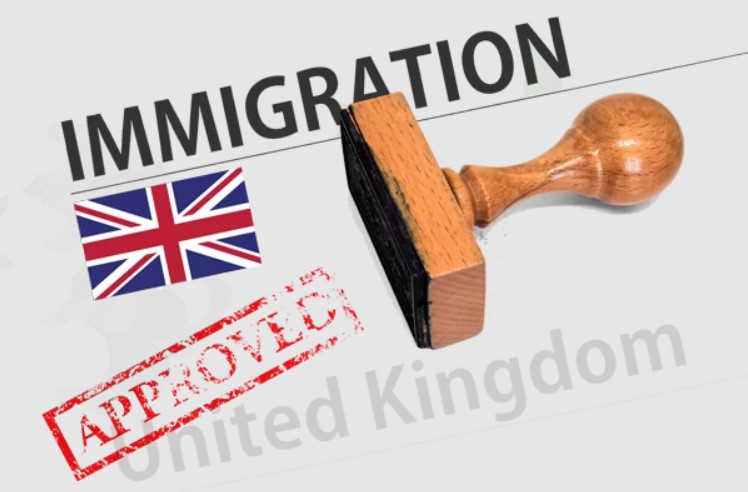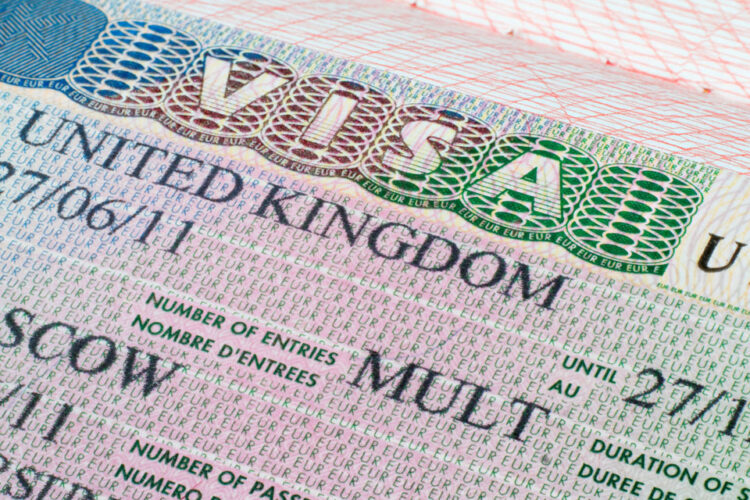Embarking on a journey to secure a UK visa is often filled with anticipation, hopes, and aspirations. However, the path to obtaining a visa can sometimes lead to unexpected roadblocks – visa refusals.
While a refusal can be disheartening, it’s important to remember that it’s not necessarily the end of the road. The UK immigration system offers a glimmer of hope through the appeal process, providing applicants with a second chance to rectify misunderstandings, address concerns, and ultimately, realize their dreams.
In this comprehensive article, we unravel the intricacies of the UK visa appeal process, guiding applicants from refusal to resolution.
Understanding the Initial Refusal ─ A Step Towards Clarity
The journey of UK visa refusal appeal begins with understanding the reasons behind the initial refusal. The refusal letter serves as a valuable document that sheds light on the specific grounds for the decision.
Analyzing this letter with diligence can offer insights into the aspects that need to be addressed in the appeal. Common reasons for visa refusals encompass insufficient evidence, financial ineligibility, lack of genuine intent, immigration history, criminal records, and health-related concerns.
Each refusal reason presents a unique challenge that can be addressed strategically during the appeal process.
Laying the Foundation ─ Gathering Stronger Evidence
A successful appeal hinges on presenting robust evidence that counters the reasons for refusal. This involves gathering additional documentation that substantiates your case. For instance, if the refusal was due to financial ineligibility, providing accurate and comprehensive financial records becomes crucial.
If the refusal was due to insufficient evidence of ties to your home country, gather documents that clearly demonstrate your connections, commitments, and intentions to return.

Navigating the Types of Appeals
The path of appeal is multifaceted, offering distinct avenues that cater to the nuances of each individual case. Understanding these avenues is essential for choosing the appropriate route to seek resolution. Here, we delve deeper into the primary avenues for appeals within the UK immigration system:
1. Administrative Review ─ Seeking Procedural Clarity
In cases where the refusal seems to stem from procedural errors or factual inaccuracies, an administrative review is a recourse to consider. Certain visa categories provide the option of having a different immigration officer review the refusal decision.
While an administrative review doesn’t involve the submission of new evidence, its focus is on rectifying any procedural missteps that might have occurred during the initial assessment. This avenue underscores the system’s commitment to ensuring fairness and accuracy while granting applicants the opportunity to have their cases reconsidered from a fresh perspective.
2. First-tier Tribunal (Immigration and Asylum Chamber) Appeal ─ The Path of Judicial Recourse
For individuals whose visa applications were refused, the First-tier Tribunal stands as an impartial pillar of justice. As an independent judicial body, the tribunal scrutinizes the refusal decision based on the evidence presented and the specific circumstances surrounding the case.
The appeal process involves more than just submitting documents; it necessitates the crafting of a compelling written statement that addresses the reasons for refusal, presents new evidence, and articulates your stance persuasively. If required, a hearing may be scheduled, providing the chance to further bolster your case through verbal presentation.
3. Judicial Review ─ Unraveling Legal Complexities
In extraordinary situations where all other routes have been exhausted, the path of judicial review emerges as a possibility. Unlike the previous appeal avenues, a judicial review doesn’t challenge the decision itself; rather, it challenges the legality of the decision-making process.
This avenue requires demonstrating that the decision was not only incorrect but also unlawful, irrational, or in violation of human rights. The judicial review process demands a nuanced understanding of legal intricacies and is often pursued with the assistance of legal experts.
The Anatomy of a Compelling Written Statement

A successfully written statement is a delicate fusion of clarity, coherence, and persuasion. It should adhere to a structured format that highlights the following elements:
- Addressing the refusal reasons ─ Begin by acknowledging the reasons for the initial refusal. This demonstrates your understanding of the issues raised and sets the tone for a thoughtful and comprehensive response.
- Presenting new evidence ─ Provide additional evidence that counters the refusal reasons and substantiates your case. This evidence could include updated financial records, documents highlighting your ties to your home country, or any other relevant documentation that adds weight to your appeal.
- Highlighting genuine intent ─ Emphasize your genuine intentions and the significance of your purpose in the UK. Clarify any misconceptions and outline how your visit aligns with the visa requirements and regulations.
- Persuasive communication ─ Articulate your thoughts eloquently and persuasively. Use persuasive language to underscore the reasons why the refusal decision should be reconsidered.
- Clarity and coherence ─ Ensure that your written statement is clear, concise, and well-organized. Avoid ambiguity and tangential discussions, focusing on the key points that address the refusal reasons.
Guidance from Experts ─ Navigating the Complexity
Navigating the intricate landscape of the appeal process requires a blend of legal expertise, strategic thinking, and a thorough understanding of the immigration system. For individuals who are unfamiliar with legal procedures, seeking guidance from immigration professionals or legal experts can provide a crucial advantage.

Unveiling the Complexity
Appeal procedures can be complex, involving legal nuances and procedural intricacies. Immigration professionals possess the experience and knowledge needed to interpret the legal requirements, identify gaps in your case, and develop a comprehensive appeal strategy.
Tailored Advice for Your Case
Immigration professionals can review your specific circumstances, analyze the reasons for refusal, and provide tailored advice. Their insights can guide you in gathering the right evidence, structuring your written statement, and presenting your case in the most compelling manner.
Streamlined Documentation
Legal experts can assist in assembling the required documentation, ensuring that your appeal submission is complete and adheres to the necessary legal standards. This minimizes the risk of overlooking crucial elements that could impact the outcome.
The Essence of Timeliness ─ Meeting Deadlines
Timeliness is not just a procedural requirement; it’s a testament to your commitment to resolving the issue at hand. Missing appeal deadlines can result in your appeal not being considered, prolonging the resolution process. Demonstrating your dedication to adhering to the timeline reinforces your seriousness about obtaining a UK visa.
In Conclusion ─ Embracing the Path of Persistence
Navigating the UK visa appeal process requires determination, patience, and strategic thinking. It’s a journey from refusal to resolution, from disappointment to determination. Remember that an appeal is an opportunity to present a more comprehensive picture of your situation, address concerns, and demonstrate your genuine intentions.
While the process may be challenging, it also symbolizes a commitment to your aspirations, a willingness to overcome obstacles, and an unwavering pursuit of your dreams in the United Kingdom. As you navigate this path, you join a legacy of individuals who turned setbacks into stepping stones and transformed refusals into resolutions.
 Hi Boox Popular Magazine 2024
Hi Boox Popular Magazine 2024



